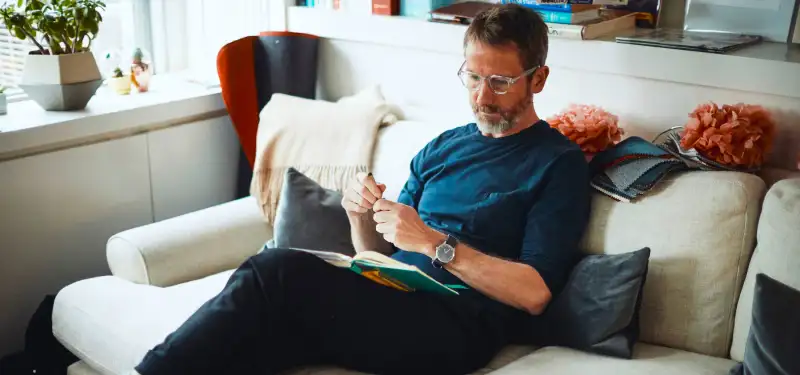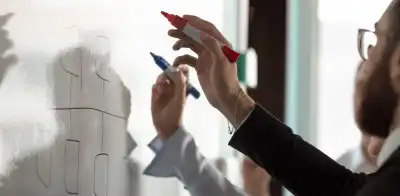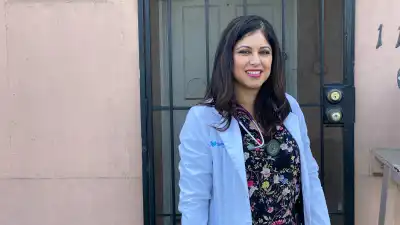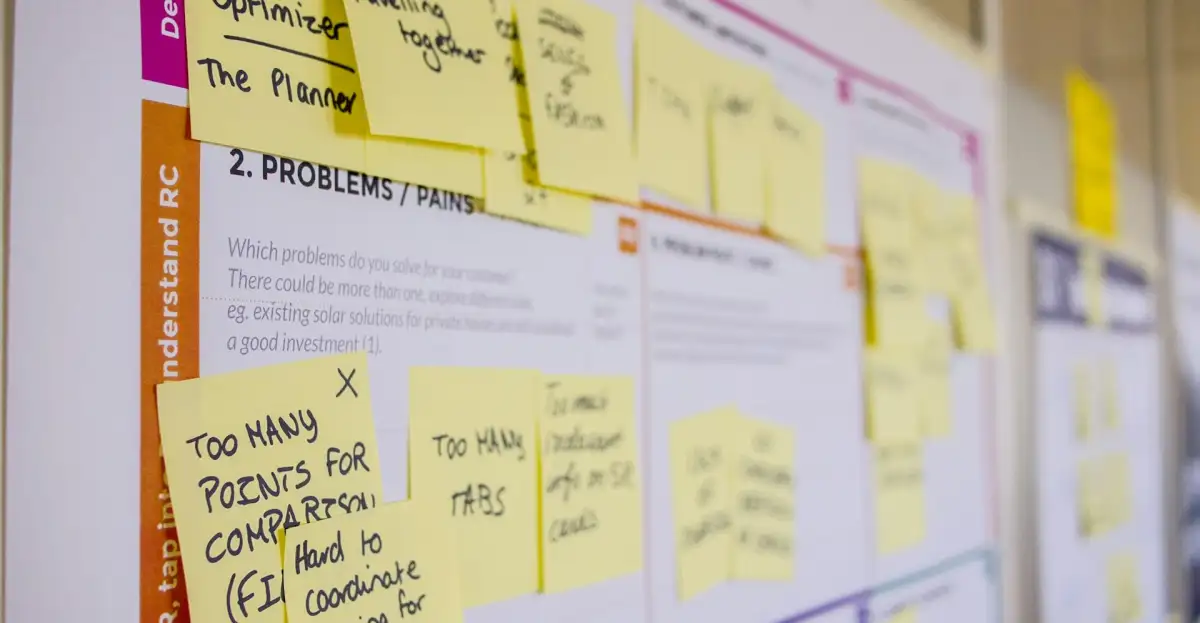Summary
Discover how digital publication Apartment Therapy leverages OKRs to navigate digital transformation, enhance brand and foster a creative, empowered workplace.
This piece is Part One of a three-part series featuring Apartment Therapy.
Part Two: Ending the Week With a Win With OKRs
Part Three: OKRs: A CEO’s Perspective
When it comes to millennial home design, it’s hard to think of a brand with more name recognition than Apartment Therapy. The playful, quirky, and colorful design and décor website first came to life as a newsletter, launched by Maxwell Ryan in 2001. Since then, it’s grown into a full-fledged media company.
“The whole idea of Apartment Therapy was that if I can explain to you why you don’t feel good in your living room, then you should be able to do this on your own,” said Ryan in a recent interview at his office on New York’s Lafayette Street, just steps away from the bustle of shoppers in SoHo. In short, the point is not to hand-hold readers through the process, but rather to give them enough know-how to become confident home designers themselves.
Alongside culinary sister site The Kitchn (launched in 2005), Apartment Therapy now offers home tours, buying guides, DIY design tips, and more to a devoted audience of 30 million unique users. An object featured on Apartment Therapy is a guaranteed bestseller, while a house tour can turn homeowners into mini celebrities in the design world. Offline, Apartment Therapy has published award-winning books and launched both furniture and tableware collections.
In short, Apartment Therapy is a force to be reckoned with. But to Ryan, who was a Waldorf School teacher before he got into interior design, and never could have imagined he’d be at the helm of a mini media empire, it’s not just about a room, it’s about how people feel in that room. Are they happy? Are they productive? Are they focused? Are they relaxed? How much power do they feel they have in designing their lives and careers? To Ryan, all these things play a part in building a beautiful space, as well as a successful company.
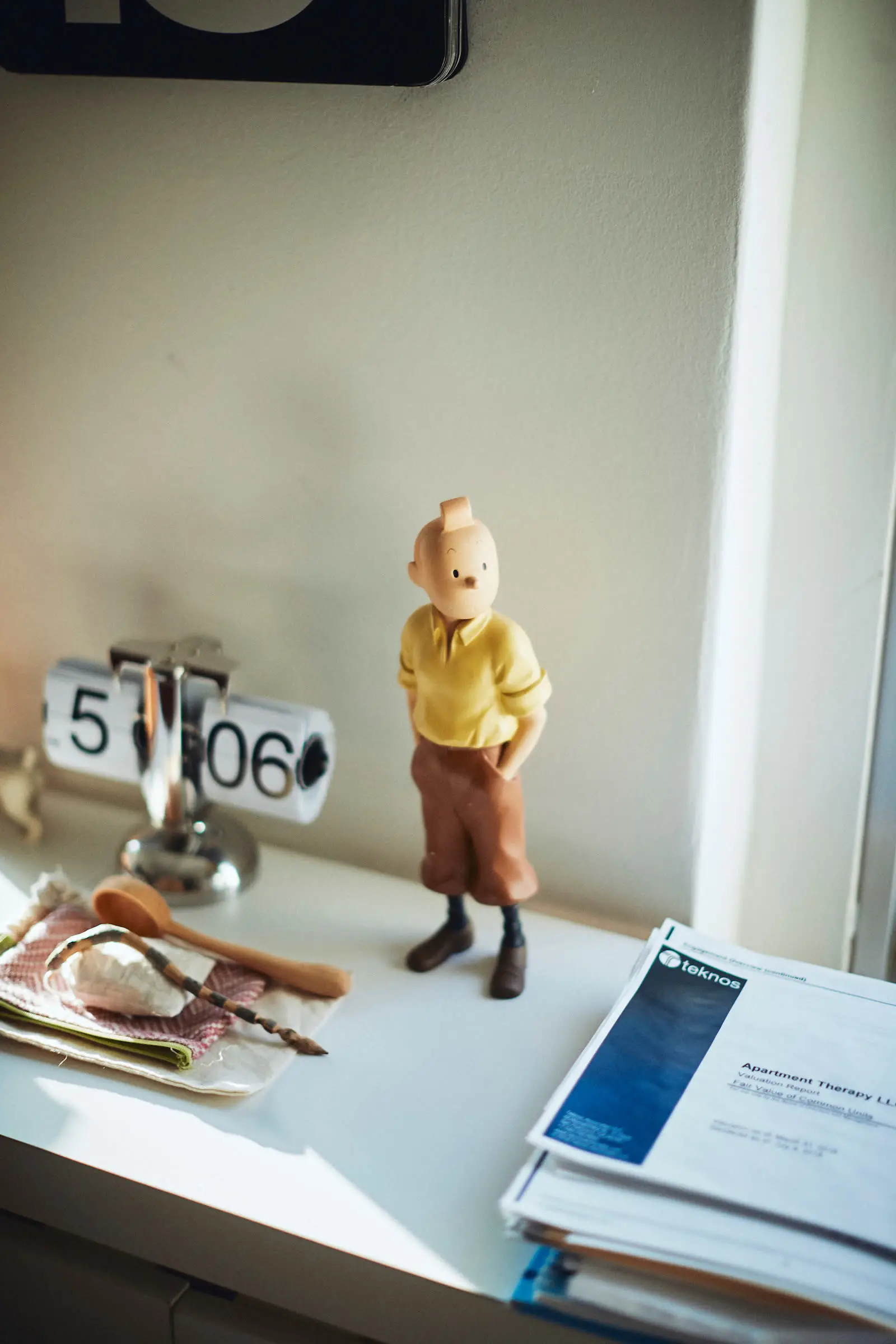
After a decade of growth, Ryan was looking to take Apartment Therapy to the next level. How could he make each employee feel more empowered, while also leveraging Apartment Therapy’s well-known brand in a digital media landscape that had changed drastically since he first started? “Readers know us, but in the marketplace we’re not very well known,” he said, referring to ad sales. “We are just as big as other sites, but we make half as much money.”
Clearly, they were underselling themselves, and his solution was not to look to other home design brands, but rather, to take inspiration from Silicon Valley. He turned to OKRs (Objectives and Key Results), a management method employed by teams at Intel, Microsoft, and Google to great success. “People were asking me, ‘What are you doing next? What’s your vision?’” he explained. “The beauty of OKRs is that they’re not just a to-do list.” Indeed, to those who use them, OKRs are a way of life.
Fittingly, Ryan’s first introduction to OKRs was a bottom-up kind of thing: “One of our employees actually suggested it in a meeting, and I said, ‘quick, google OKRs!’” His search led him to Radical Focus: Achieving Your Most Important Goals with Objectives and Key Results by Christina Wodtke, which encouraged him to develop a plan that would work for Apartment Therapy.

OKRs are a method anyone can use, and a way of focusing not on results, but on the incremental, more easily achievable steps it takes to get there. OKRs put power in the hands of a larger number of workers, spreading out the responsibility so that everyone is capable of setting — and invited to set — his or her own goals and find the building blocks for them.
It starts, Ryan explained, with choosing a global Objective. For Apartment Therapy over the next three years that Objective will be “Own the Home.” Apartment Therapy has excelled at encouraging its readers to take control of their space and create beauty out of everyday objects. The website was a digital version of Marie Kondo long before The Life-Changing Magic of Tidying Up was a blip on anyone’s radar. Now, as evidenced by Kondo’s success, the home and kitchen space has grown exponentially. How does Apartment Therapy make sure it becomes its readers’ first stop, not just once, but every day?

Part of it, Ryan explained, was realizing what a large and loyal fanbase they already had, and capitalizing on that, rather than going after new blood. “It makes much more sense for us to focus on the people that already know us, getting them to stick around longer,” Ryan said. “Supermarkets are fabulous at this, especially places like IKEA: They get you in the front door, let you drop off your kids, feed you meatballs, and make you wind through every section.”
Once the global Objective has been established, the year is broken down into quarters, so Apartment Therapy has “12 quarters to get there, or 12 balls to take a swing at.” Of course, built into the concept of OKRs is the idea that nothing is hard and fast. Through frequent check-ins, Ryan and his team will get a sense of what works and what doesn’t, and know when to pivot early, thereby saving themselves the trouble of correcting later mistakes. These take place through WINS meetings, and Ryan was about to go in for the first of the year just as our interview concluded. Just a month earlier, he’d foreseen difficulties in getting everyone to sign onto this system, but now it looked like this was one achievement he had in the bag.
We’ll be following Apartment Therapy over the next couple of months to see how the company uses OKRs to get to the next level. We invite you to come along for the journey, to share your thoughts, and to get inspired to start using OKRs in your own life.
This piece is Part One of a three-part series featuring Apartment Therapy.
Part Two: Ending the Week With a Win With OKRs
Part Three: OKRs: A CEO’s Perspective
